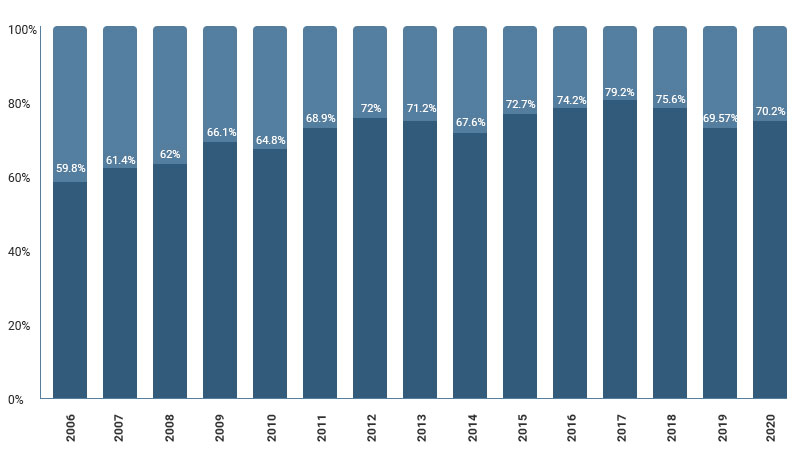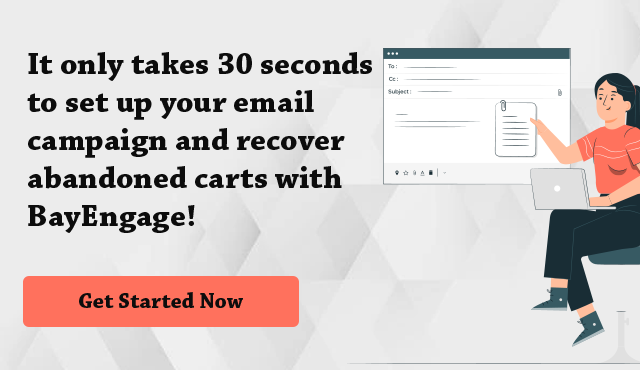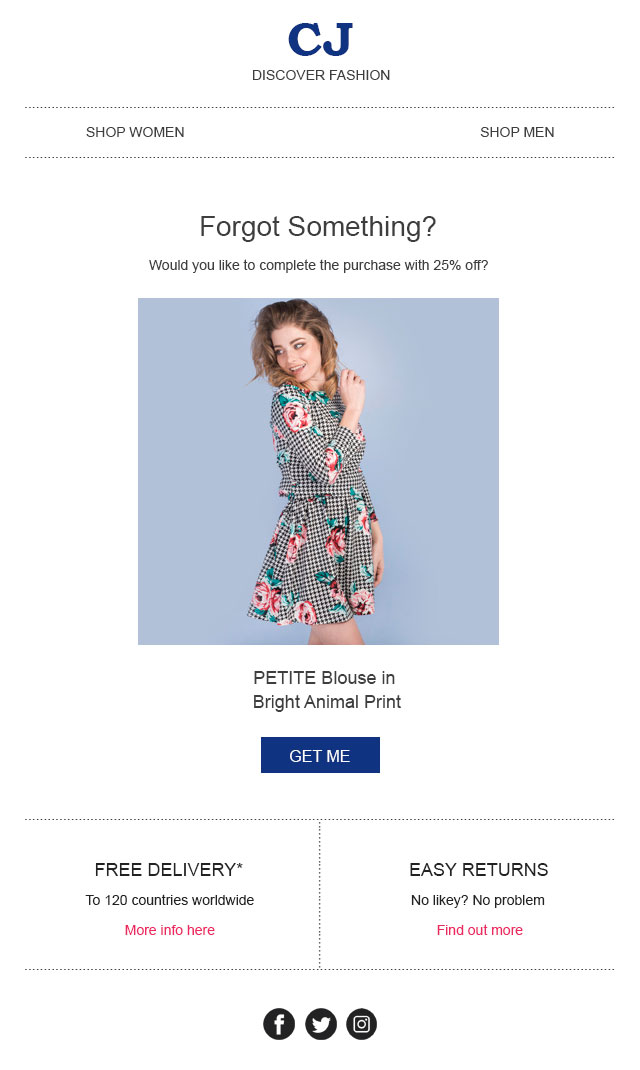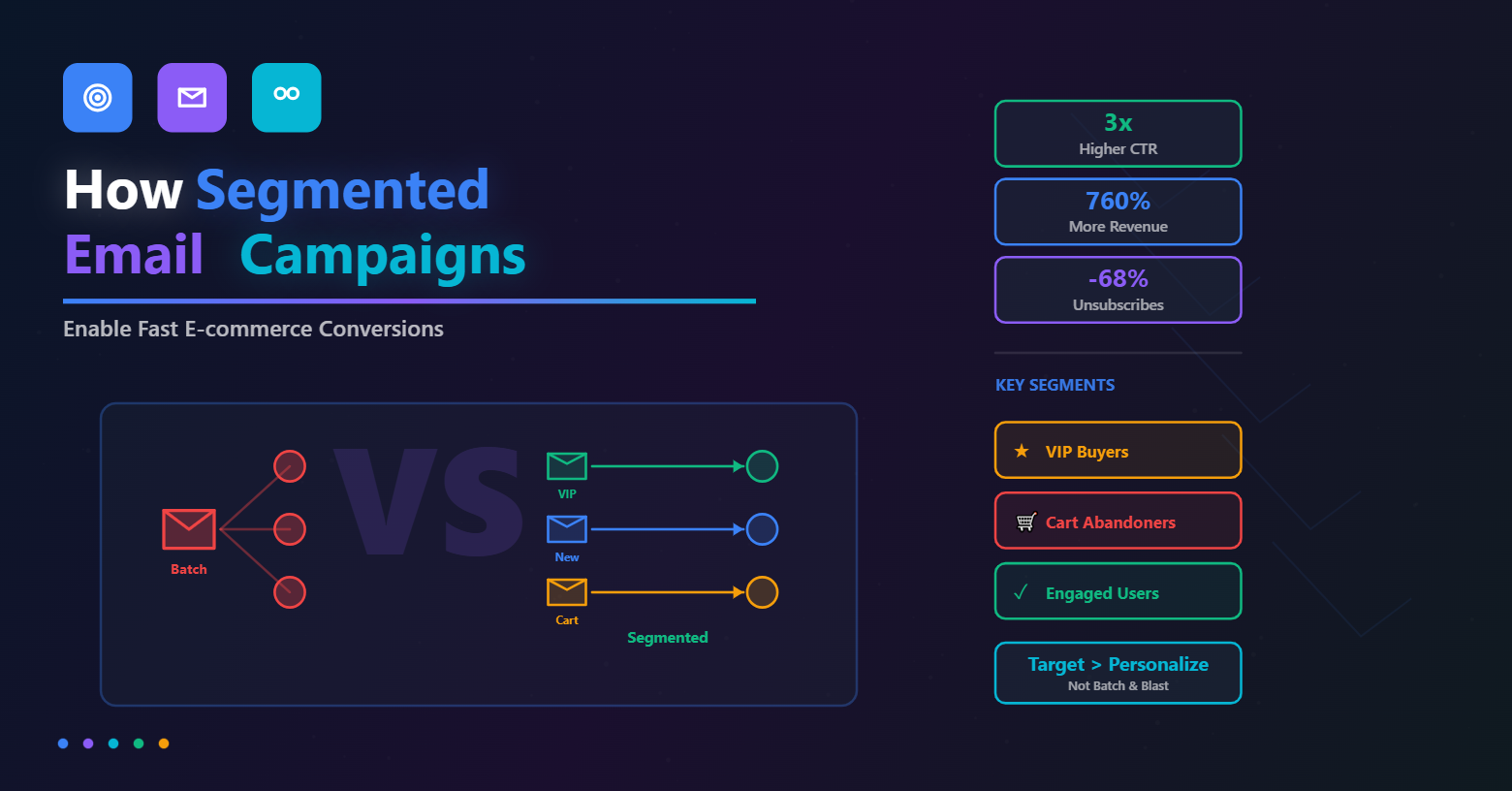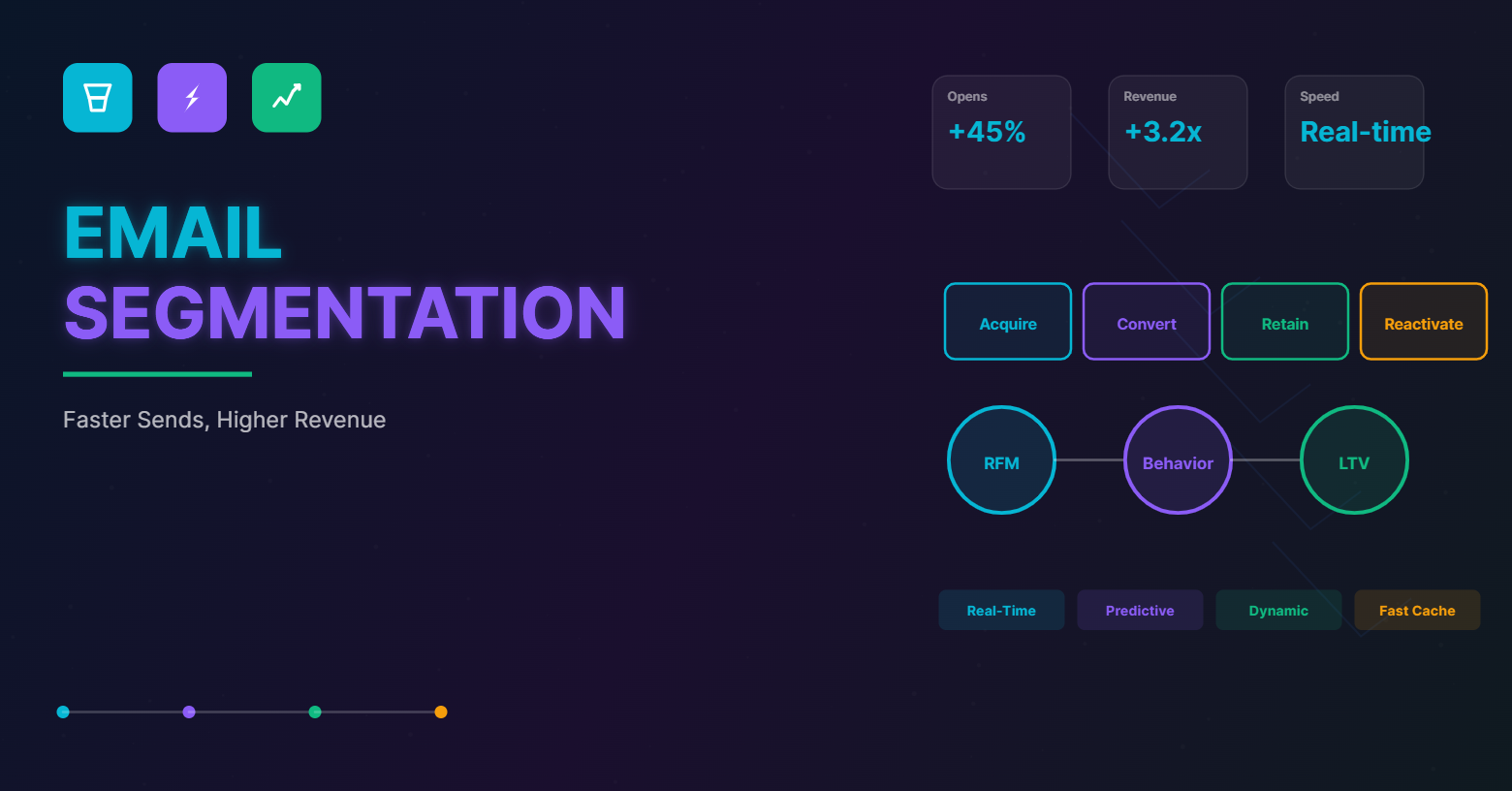As an eCommerce email marketer, I’ve always been curious to know how successful retailers conquer their biggest fear—abandoned carts with the abandoned cart email strategies. Being one of the most popular eCommerce platforms on the planet, with almost 31% market share, I analyzed several successful Shopify stores. I comprehended the different ways they adopted to deal with cart abandonment.
And the best possible way is to send out those Shopify Abandoned cart emails using specific abandoned cart email strategies. The magic doesn’t happen over a day, you need to set up certain end goals to get back those lost Shopify customers and attract them with valuable content and emails that they want!
Moreover, you can use an email marketing platform for Shopify to make the job easier.
Through this article, I intend to share some of the most valuable insights and strategies that I discovered during my pursuit of knowledge—in the hope of helping small and medium Shopify stores optimize their cart recovery strategy.
However, before we delve a bit deeper and uncover the secret recipe, one must know why a cart recovery strategy in Shopify email marketing is imperative for retail success.
Why Should You Recover Abandoned Carts?
For starters, online retailers’ average shopping cart abandonment rate varies between 60% and 80%. As a matter of fact, $260 billion worth of lost orders is recoverable through a robust cart recovery strategy. However—as you already know— there is much more to the story of shopping cart abandonment than just the average rate of carts abandoned.
Let me make it simple—I have sorted these aggregate stat across three primary dimensions:
- How does the cart abandonment rate change with time?
- How does the cart abandonment rate change with Industries?
- How does the cart abandonment rate change with devices?
Average Shopping Cart Abandonment Rate from 2006 to 2020
Industry-Specific Cart Abandonment Statistics
Cart Abandonment by Device
Make Time for Planning
“The man who is prepared has his battle half fought- Miguel de Cervantes”
Cart abandonment has become a norm for eCommerce brands. No one escapes it, and that is why it takes careful planning to tackle it.
So, how do you do that?
There are different ways you can adopt to counter the cart abandonment phenomenon. Some of them include:
- Optimizing your store’s checkout for maximum conversions—making it more simple and hassle-free
- Using exit-intent pop-ups to tackle cart abandonment before it happens. You can offer free shipping or discounts to prevent shoppers from abandoning the purchase.
- Sending abandoned cart emails to re-engage your customers. A Shopify abandoned cart email is highly conversion-centric and has an average conversion rate of 18.64%.
- Retargeting shoppers who abandoned their carts—through ads. Ads are super-effective—you can even incorporate social proof to improve their chances of conversion.
Now, Let me answer the obvious question: which of the above is the most effective way to recapture your lost sales?
Well, I’d say—all of them. Successful cart recovery campaigns consider every angle of the issue and utilize all the possibilities. However, here is my personal favorite—email remarketing. And if you want to know why, this is it.
Cart Recovery Email Open Rates: 2016-2020
Cart Recovery Email Conversion Rates: 2016-2020
The Course of Action to Fight Shopify Cart Abandonment
Now that you are aware of your cart recovery options, how you execute those and pay attention to their tiniest details brings in all the difference. Here’s a compiled list of email remarketing ideas that might help you optimize your strategies to bring back lost shoppers.
Get Down to the Brass Tacks
The first rule of abandoned cart emails—be specific. Don’t beat around the bush – get to the point. Oftentimes shoppers forget what they’ve left in their cart. For this reason, Shopify abandoned cart apps should remind a shopper about the items they abandoned.
Adding zest to your email with some incentives will bring more value to your message and convince the shopper to complete the purchase.
Including an image of the abandoned product and add a detailed description, which gives a personalized touch. According to Experian research, Personalized emails deliver 6x higher transactional rates.
Hook Your Shoppers With Low-commitment CTAs
Emails with a single CTA receive 371% more clicks, and 1617% more conversions. When it comes to cart recovery emails, CTA’s are equally important as the email copy. However, instead of focusing on the design part, I’d like to zero in on how the CTA content can help you convert readers into buyers.
As you may already know, asking your email recipients to buy from your store is the strongest commitment you can expect. So, toning down the level of commitment—by rephrasing your CTA to something like “Take Me to the Cart” or “Review the Cart” will improve your chances of bringing the shoppers back to the cart.
Offer Great Support
Did you know 28% of shoppers abandon their shopping carts due to poor experience?
New-age customers demand a top-notch website experience; if your store isn’t delivering that, the customer will find it elsewhere. Even though retailers can predict the leaks in the conversion funnel with analytics, the only way to be 100% sure is through communicating with customers. When you send an abandoned cart email, make sure that you ensure a way for customers to talk to you directly about issues they may face when using your website.
Suggest Multiple Payment Options
One of the major concerns that lead to cart abandonment is the lack of enough payment issues. According to 99firms research, 10% of potential buyers would abandon a transaction if their desired payment method isn’t available. Offering an Afterpay is one of the best means to tackle this. An example email will look something like this:
Time Your Re-engagement Messages Right
Sending an abandoned cart email is one thing, but engaging your audience with the right message at the right moment is a whole different ball game.
Unlike Shopify newsletters, transactional emails, etc, your target audience won’t be expecting the abandoned cart email at all. This element of surprise can be used for your benefit. However, if you send an email too soon after the cart abandonment, you’ll come off as desperate. But, if you send them too late, the recipient will have already lost interest.
Now, there is no such thing as the best time to send cart recovery emails, there are certain factors you’ll need to consider to time your email right:
- The value of the abandoned orders
- The frequency of messages you plan to send
- The average length of your sales cycle
That being said, several successful eCommerce brands time their re-engaging emails as follows:
- The email #1 is sent within 24 hours of cart abandonment
- If the recipient doesn’t engage or convert, email #2 is sent anywhere from 24 to 48 hours after email #1
- Email #3 is optional, but it’s recommended that you get consent from your audience before sending it. Since the chances of conversion are comparably low, offering some extra product recommendations will be the right move at this point. Email #3 is sent a week after the cart abandonment.
Learn more about Shopify email automation.
Bid Farewell to Abandoned Carts!
While completely eliminating cart abandonment is practically impossible, you can certainly reach a stage in your retail journey where you no longer have to worry about it. Having a killer Shopify email marketing app is crucial if you want to implement out-of-box ideas to make your customers return to your website to complete their unfinished purchases. Annex Cloud studies have concluded that 45% of emails sent to follow up on an abandoned cart are opened by consumers, out of which 21% are clicked on while 10.7% return to make a purchase. Try BayEngage’s Abandoned cart software on a 14-day free trial to implement out-of-the-box ideas in your business and bring down the cart abandonment rate.



